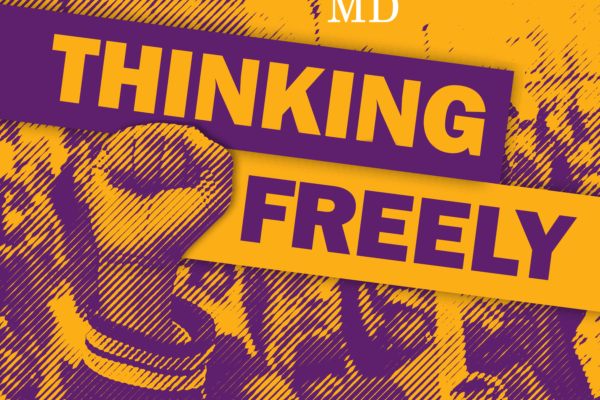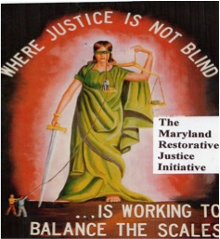BALTIMORE, MD –The fourth episode of Thinking Freely, "Racism, Algorithms, and the Fight for Redemption," features a discussion about how barriers that exist in the parole system deny Black and Brown people the opportunity to earn a second chance. Featuring Earl Young, a man who spent 34 years in prison, James Foulds, an Assistant professor in the Department of Information Systems at University of Maryland Baltimore County, and Sonia Kumar, Senior Staff Attorney at the ACLU of Maryland, this month’s episode focuses on what is broken about Maryland’s parole system, and what can be done to make it work.
Thinking Freely focuses on cutting edge issues in Maryland, like last month’s episode on voter restoration for people who are incarcerated. In this month’s episode, Amber Taylor, host and producer of Thinking Freely, and the featured guests discuss the impacts of Maryland’s current risk assessment tool used to assess candidates serving life sentences for parole. Called the Violence Risk Appraisal Guide” or “VRAG,” the tool relies exclusively on historical factors that will never change – like whether someone was separated from their parents before age 16 – to assess people’s risk of reoffending. Several such factors are associated with significant racial disparities – like the imposition of school discipline, or pretrial detention. What does it mean for Black and Brown Marylanders who are given life with parole sentences?
Earl Young is a Marylander who was sentenced to life with parole at age 16. He spent more than three decades in prison, and was released three months ago through a grant of executive clemency – not a functioning parole process. Mr. Young said: “I’m experiencing life as an adult through a child’s eyes.”
ACLU’s Sonia Kumar said: “Our country’s highest court has said that when it comes to imposing the harshest possible punishments, it is cruel to subject kids to the same penalties as adults because kids are still developing.”
More than 200 people in Maryland are serving parole-eligible life sentences for offenses committed when they were children, yet no juvenile lifer has been paroled in the last 20 years under Maryland's current scheme. The State’s overreliance on a flawed risk assessment tool, administered by the Parole Commission, is one of the reasons why.
Kumar made clear: “Put simply, the VRAG does not produce reliable assessments of risk for people serving life sentences in Maryland, especially those who were kids at the time. Rather, it aggregates factors that have well-documented racial disparities and regularly over-predicts risk of reoffending for people for whom every other common-sense measure says there is little risk. In fact, the VRAG has never been validated for any Maryland population. Yet, this is what the State uses to decide whether someone will remain in prison.”
The VRAG does not consider anything about the individual’s personal history of development while in prison.
Earl Young said, “You’ll see somebody trying their hardest. Doing their best. It was demoralizing to be hopeful and not see anybody progressing... Everybody’s holding on to something until they lose grip. You can only hold on for so tight and for so long, before you lose it.”
It is unacceptable that our broken parole system is denying hope to so many people who were children at the time of their offenses, when the law says they deserve a real opportunity for a second chance.
Thinking Freely is intentional about informing Marylanders about what is happening locally in politics, and then giving them ways to act and become more active members in the community, advocating for a better tomorrow. Listen to this episode of Thinking Freely and learn about what we as Marylanders can do to support legal reform in our criminal legal system! Listen here.
SUBSCRIBE: Thinking Freely is available Google Play, Apple Podcasts, Spotify, SoundCloud, Radio Public, Listen Notes, Stitcher, and Pandora.
###
Related Content

“Juvenile Lifers” Challenge Constitutionality of Statute Granting Governor Boundless Discretion to Decide Their Fate In Parole
Stay Informed
Sign up to be the first to hear about how to take action.
By completing this form, I agree to receive occasional emails per the terms of the ACLU’s privacy statement.
By completing this form, I agree to receive occasional emails per the terms of the ACLU’s privacy statement.



